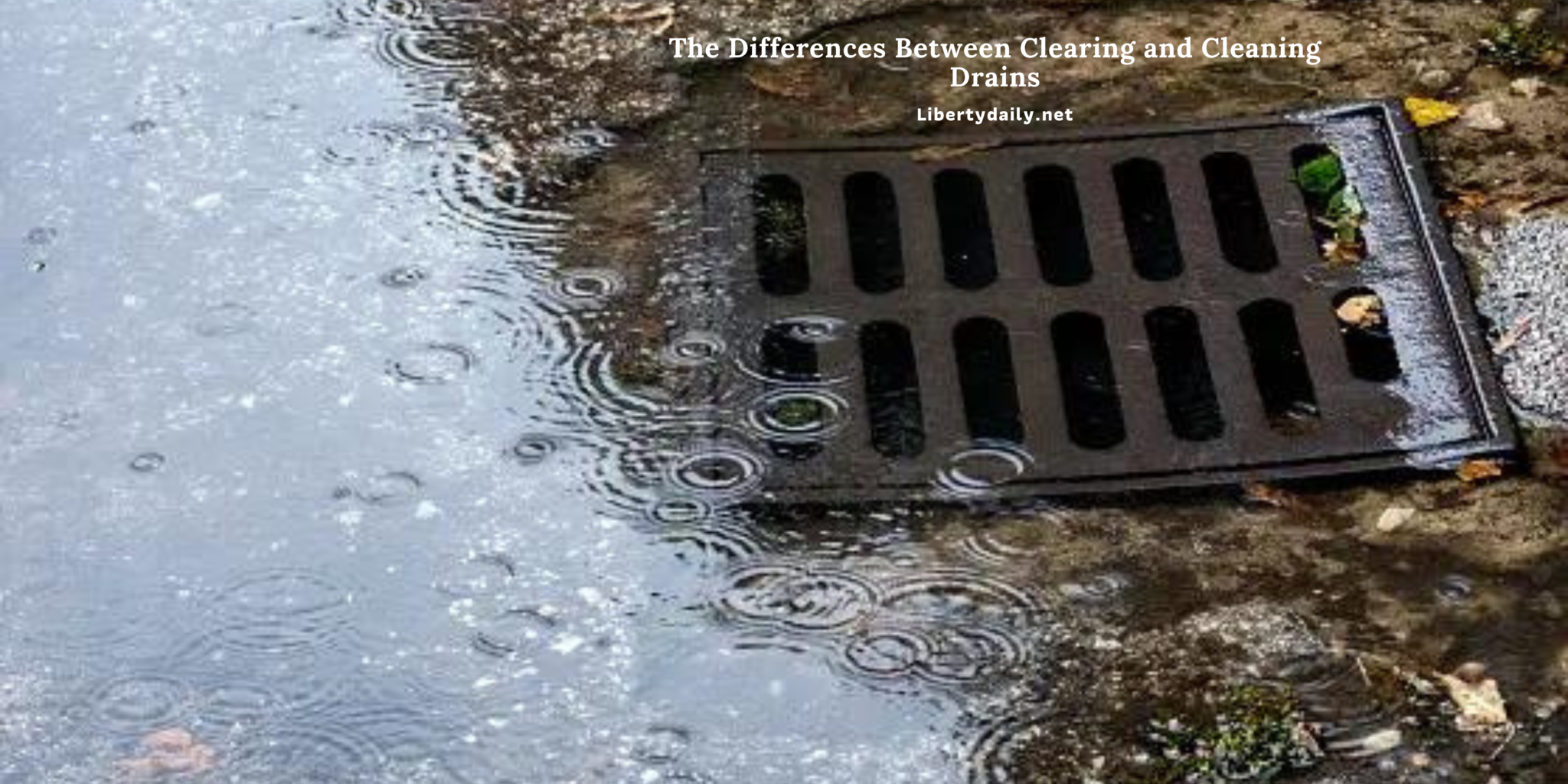When it comes to maintaining a healthy plumbing system, understanding the differences between drain clearing and drain cleaning may be necessary. These two terms are often used interchangeably. Clearing and cleaning drains refer to different processes with distinct purposes, procedures, and times when they’re needed.
Clearing Versus Cleaning Drains
Drain clearing is the process of removing immediate blockages that disrupt the flow of water. It’s the first line of action when you notice slow drainage or a complete stop in water flow. This approach targets the immediate source of a clog, often a result of debris such as food particles, grease, soap residue, or hair, particularly those close to the surface. A plunger or a plumber’s snake is often all that’s needed to clear a drain. These tools dislodge the clog and restore water flow. Drain clearing is an effective solution for mild clogs and quickly restores functionality to your drains.
Drain cleaning is a more comprehensive process. Cleaning aims to address the root cause and prevent future issues. Drain cleaning involves the eradication of accumulated dirt, grime, and buildup inside the pipe. This method is designed to restore the pipe to a clean, near-new condition, maintaining its longevity and efficiency. Professional plumbers often use hydrojetting for drain cleaning. This technique uses high-pressure water to thoroughly clean the insides of the pipe, effectively removing any buildup and potential blockages.
Signs When Your Drains Need Attention
Recognizing the signs can save you from more significant problems down the line. If you notice any of these signs, hire a professional plumbing company to clear or clean your drains. Here are signs that your drains need clearing or cleaning:
Slow Drainage
Slow drainage manifests as water draining slowly from sinks, bathtubs, or showers. The cause may be a blockage within the pipes, which restricts the free flow of water. Common causes for such blockages include accumulated hair, soap scum, food debris, and grease. Over time, these materials build up within the drain, narrowing the passage and slowing down the water flow. If left unaddressed, this slow drainage escalates into more serious plumbing problems, such as complete blockages or backed-up sewage.
Unpleasant Odors
Unpleasant odors result from the buildup of organic material, such as food particles, which start decomposing over time in the pipes. This decomposition process releases foul smells, which then travel up through the drain and into your home. In some cases, the odor could also be due to the failure of the water seal in the P-trap, especially in sinks that are not used as frequently. A persistently smelly drain, despite regular cleaning, may indicate a more serious blockage issue within the pipes.
Backflow
Backflow occurs when there’s an obstruction in the sewer line, causing water to flow back into the home instead of outward as it should. Visible signs of backflow can include water coming back up through your sinks, toilets, bathtubs, or shower drains. This is a health hazard, as it can introduce harmful bacteria into your home.
Gurgling Sounds
Gurgling sounds are caused by air escaping from your drain. The presence of air in your drain line may be a sign of a clog or partial blockage, which disrupts the normal flow of water. In some cases, the gurgling sound could even indicate a more serious issue, like a blocked sewer line or vent pipe. Regular occurrence of these sounds, particularly after flushing the toilet or emptying the sink, is a cause for concern.
Water Stains
Water stains occur around fixtures or on walls, ceilings, or floors near pipes. These stains can be caused by leaking pipes that allow water to seep out and stain the surrounding areas. This leakage can be due to clogs in your drainage system which increase pressure, affecting the structural integrity of your home.
Work With Drain Cleaning Companies
Understanding the differences between clearing and cleaning drains is key to maintaining a robust and efficient plumbing system. While both are necessary, knowing when to utilize each process can save you from potential plumbing issues and costly repairs in the future. Regular drain maintenance, including both clearing and cleaning, can keep your drains running smoothly and extend the lifespan of your entire plumbing system. Hire professionals as they can offer thorough cleaning that reaches deep into your pipes with their professional equipment.



